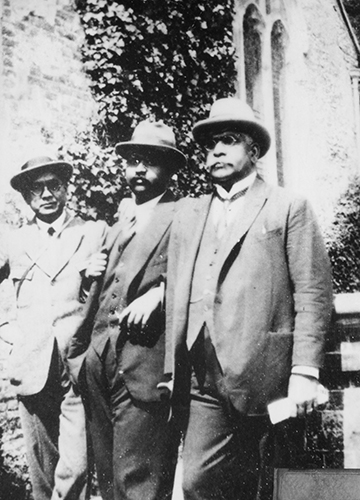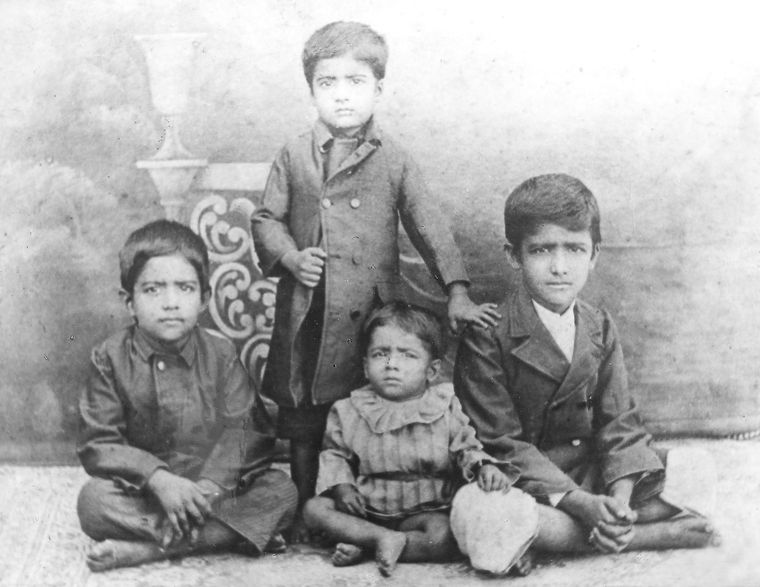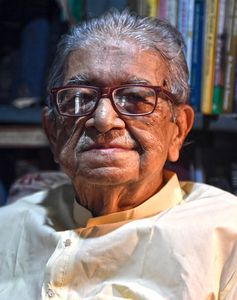Dr Syama Prasad Mookerjee was my uncle and he lived in our family mansion at 77 Asutosh Mookerjee Road, Kolkata. I am somewhat diffident to write at length about someone who was so closely related. Our grandfather, Sir Asutosh Mookerjee, died a few years before I was born. But when I was young, the memory of Sir Asutosh and his influence still prevailed in our family.
My uncle used to speak often about the values and ideals of his father. While he was in Calcutta, my uncle remained extremely busy. He met a stream of visitors from all walks of life every morning. Former president of India Dr S. Radhakrishnan was one of his close friends. I have seen him visiting my uncle immediately after he returned from his morning walk. My uncle spent his days in Calcutta attending meetings at Calcutta University and elsewhere.
My uncle was totally relaxed when we were at our holiday home in Madhupur. He enjoyed playing bridge with his friends and with youngsters from our family. He also loved to recount the stories of his younger days. While he was in England, he and his friends used to hold seances (a meeting at which people attempt to make contact with the dead). Occasionally they were disturbed by an evil spirit. My uncle had then sought the advice of Sir Arthur Conan Doyle (the author of the famous Sherlock Holmes series) who advised him against holding further seances. My uncle enjoyed home-cooked food when he was in a relaxed mood and would even suggest some of the recipes. As he became more and more engrossed in politics, his light-hearted company with us became rare.
My uncle was from the field of education and he later entered active politics. After the 1937 general elections, A.K. Fazlul Haq first joined hands with the Muslim League to form the government in Bengal. Communal tension between the two major communities was on the rise. The Congress split in Bengal and there was a leadership vacuum in the legislative assembly and outside. My uncle was compelled to assume the leadership of the Hindus who were facing danger from the communal politics of the Muslim League. In December 1939, he joined the Hindu Mahasabha and gradually became a national leader. He was never communal and maintained his friendship with prominent Muslim leaders.
My uncle was a great orator and an able parliamentarian. After Haq broke away from the Muslim League, Sarat Chandra Bose (elder brother of Netaji Subhas Chandra Bose) and my uncle joined hands with him to form the Progressive Coalition Party. Haq became prime minister and my uncle became finance minister. Sarat Bose was also to be a minister, but he was arrested before he could take oath. Under his direction, two of his followers were made ministers.
It is totally untrue that Syama Prasad Mookerjee ever joined hands with the Muslim League. As a minister, my uncle frequently clashed with Bengal governor Sir John Herbert. His letters to the governor and the viceroy were banned when they were published. After Haq resigned and the Muslim League came back to power, Bengal faced the great famine. My uncle organised relief measures and he exposed, on the floor of the legislature, the lapses and wrongdoings of the government’s food policy.
Communal tension continued to rise in Bengal and the rest of India. My uncle had campaigned throughout India against Muhammad Ali Jinnah’s demand for Pakistan. But when partition became inevitable and the whole of Bengal was claimed by the Muslim League as East Pakistan, my uncle took a prominent part in demanding that at least a part of Bengal should remain with India. He used to say, “Jinnah divided India, but I divided East Pakistan by retaining a part of the Bengal presidency within the Indian Union.”
My uncle successfully opposed the creation of a sovereign Bengal as advocated by Sarat Bose and S.H. Suhrawardy. It was largely because of his leadership that a part of Bengal became what is now known as West Bengal under the Radcliffe Award. My uncle was a member of the Constituent Assembly of India and its proceedings have recorded his speeches and suggestions while the Indian Constitution was being framed. He had vehemently opposed amendments of Article 19 and 31, which curtailed civil liberties and the right to property.
My uncle was minister of industries in the first Union cabinet after independence. He resigned when Jawaharlal Nehru made a pact with Pakistan prime minister Liaquat Ali Khan regarding the migration of refugees from East Pakistan into India. After the first general elections, my uncle was elected to the Lok Sabha; although he was not formally designated so, he was the de facto leader of opposition. He frequently clashed with Nehru over his policies, particularly towards Pakistan. He formed a new party called the Bharatiya Jana Sangh. The ideas and objectives of the Jana Sangh, however, are not the same as that of the Bharatiya Janata Party.
My uncle was arrested when he tried to enter Kashmir and was detained in Srinagar. Nehru then went to London for the Commonwealth Prime Ministers’ Conference and Syama Prasad Mookerjee died in Srinagar. Nehru refused the request made by my grandmother for an inquiry into the circumstances of his death.
The message on the morning of June 24, 1953—the news of his death—was conveyed in a rather garbled way by a telephone operator to my father in Calcutta. I recall my father going to Dr B.C. Roy to ascertain correctly the news of his demise. Many prominent physicians in Calcutta and elsewhere had criticised the treatment given to my uncle in Srinagar. Our family was not informed when my uncle had taken ill and was hospitalised. His detention was totally unconstitutional.
The author, who is Mookerjee’s nephew, was chief justice of Calcutta and Bombay High Courts.




